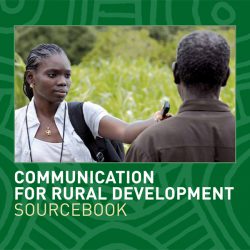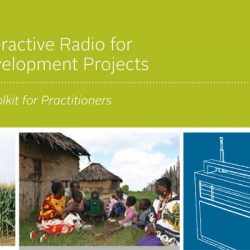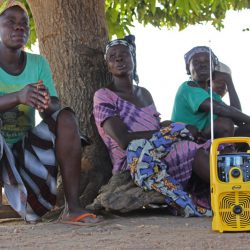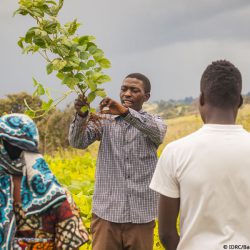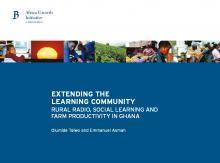Communication for Rural Development Sourcebook
This sourcebook is meant to equip development and communication professionals with a useful set of guidelines, reference materials and learning resources to apply communication in rural development initiatives. The main goal is to enable readers to design and implement rural communication strategies combining participatory methods with communication processes, media and tools best suited for a specific situation. In particular, the sourcebook aims to develop the following capacities in ComDev: 1.

